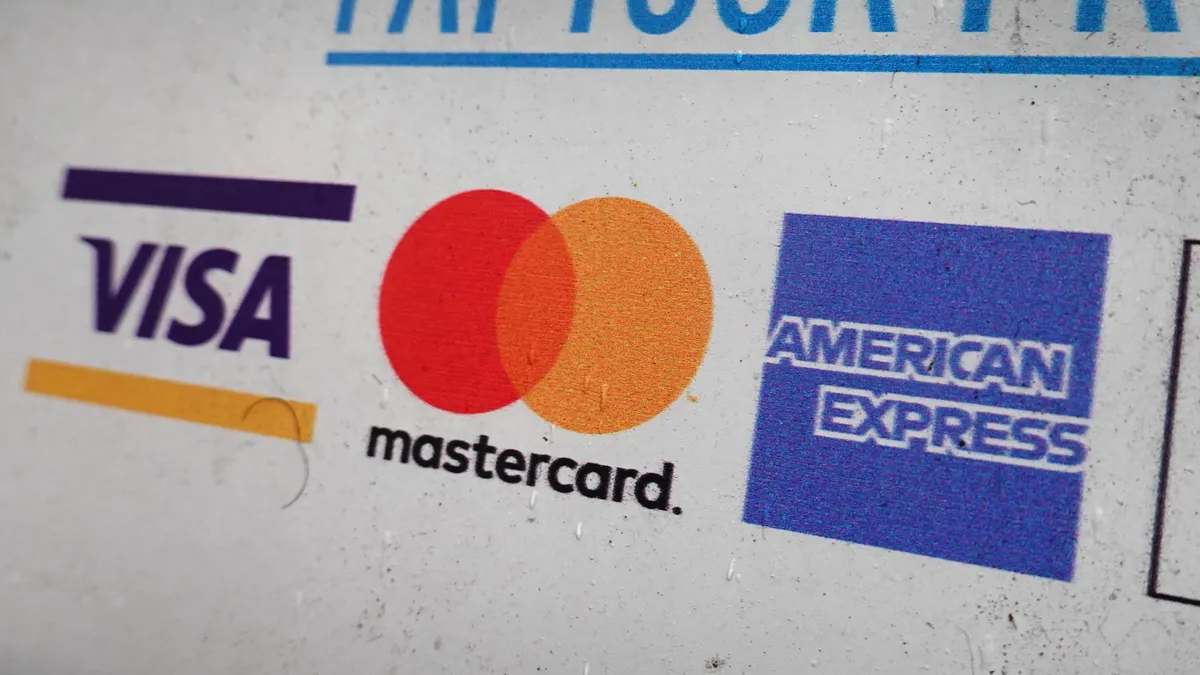Mastercard is likely to suffer the biggest competitive blow in the card network industry if Capital One absorbs Discover, shifting debit and credit payment flows to its newly acquired network.
The deal is still subject to regulatory approvals and will unfold throughout the year, but the biggest U.S. card network, Visa, also is expected to be negatively affected.
Capital One has said it will shift its current debit payment volume, all of which is carried by Mastercard, to Discover, but it has remained coy about what will happen with the credit payment flow. Only “selected credit card purchase volume” will move to Discover, according to the Monday press release announcing the transaction.
That’s likely to spark new jockeying between Visa and No. 2 rival Mastercard to hold onto as much of Capital One’s business as possible.
“It will be all hands on deck at Visa and Mastercard to retain those cards,” said David Robertson, publisher of the industry research outlet Nilson Report.
That may mean wheeling and dealing behind the scenes.
“One can’t help but think that Visa has deep pockets, and it’s going to want to hold onto its business,” Robertson added, noting that the networks can offer incentives to keep the business.
Setting a positive tone for what comes next, a Mastercard spokesperson called the work with Capital One “a great partnership” and pointed to more of the same for the future.
”We have already spoken with Capital One about this news,” the spokesperson said. “Our takeaway is that this is a partnership that will continue for the long term.”
He added: “There’s a lot of history and shared wins between our organizations. That sets the stage for our continued collaboration.”
Capital One estimated the acquisition will “generate network synergies of $1.2 billion in 2027,” meaning it will benefit from network business shifting away from the two top networks to Discover, which is the industry’s fourth-place player, after American Express.
The figures from Capital One have set analysts to crunching numbers to better understand the impact on Visa and Mastercard, which control about 80% of the market.
Mastercard stands to lose revenue of about $636 million annually, RBC Capital Markets analyst Daniel Perlin estimated in a note to investment clients Monday. That includes $450 million on the debit side and $186 million on the credit side, Perlin figured, noting his estimates may have flaws. That’s about a 2% nick to Mastercard annual revenue in 2027, as the acquisition synergies kick in, according to his note.
Visa is likely to be less affected, with a $134 million knock on credit revenue by 2027, curtailing that hypothetical annual top line by less than 1%, Perlin estimated.
No matter what, some of that revenue at the networks will disappear.
“One way or another, Visa and Mastercard are going to lose here,” Robertson said.
Visa didn’t respond to a request for comment.















